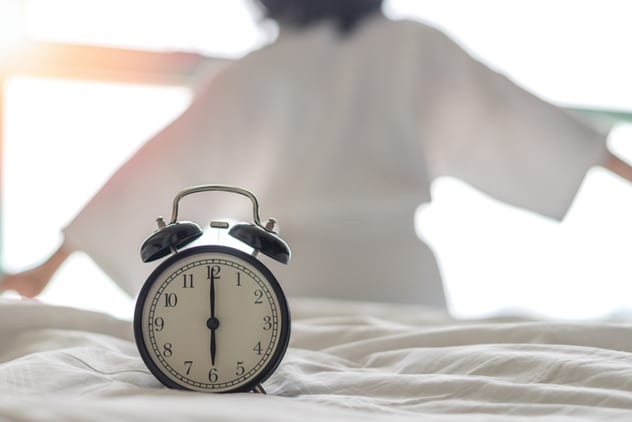All mammals go through a 24-hour routine – known as a circadian rhythm or ‘body clock’.
It is the means of adjusting biological mechanisms (such as hunger, hormonal activity, body temperature and the need for sleep) according to natural rhythms, such as the day-night cycle.
This daily rhythm helps us use our body’s energy in a more efficient way. Jet lag is what happens when our body clock gets out of sync with its surroundings after crossing time zones.
To find out whether body clocks can affect how well the immune response works, a team of investigators from the Douglas Mental Health University Institute and the Université de Montréal in Canada performed a study on two groups of mice, published in Proceedings of the National Academy of Sciences.
They genetically engineered the first group by switching off specific ‘clock genes’ that regulate circadian rhythms, and left the genes naturally active in the second group. The team then administered a vaccine to rodents from both groups to trigger an immune response.
“We observed that after vaccination, the strength of the CD8 T cell response varied according to the time of day. Conversely, in mice whose CD8 T cells were deficient for the clock gene, this circadian rhythm was abolished, and response to the vaccine was diminished in the daytime,” explained Professor Nicolas Cermakian, one of the study authors.
The implications of this on healthcare could be huge. Drugs may need to be given at certain times of day in order to make them more effective, or drugs could be made that actually target the body clock to put the immune system into its most active phase.
It may also mean that disrupting your circadian rhythm through sleep interruptions or travelling across the time zones could contribute to a weakening of your immune system.
To help keep your body clock (and potentially your immune system) in check, stick to a consistent sleep schedule.
You should also expose yourself to sunlight in the morning, to reset your circadian rhythm, and try to avoid too much bright light at night – this can throw off your body clock by tricking your brain into thinking it’s still daytime.
For more tips on how to get to sleep, read – Dr. Ron Ehrlich 10 Tips to a Good Night’s Sleep




